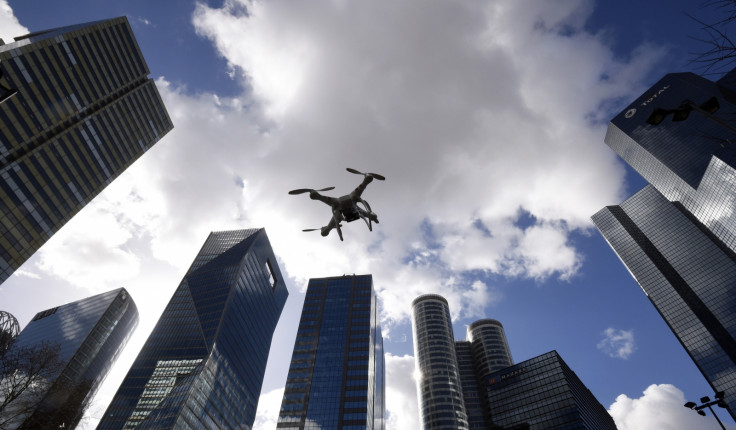UK government to test drone safety by deliberating crashing UAVs into passenger aeroplanes
Department of Transport, CAA and MoD are testing drones on jets to see how much damage they cause.

UK ministers have ordered the Department of Transport (DoT), the Civil Aviation Authority (CAA) and the Ministry of Defence (MoD) to start testing what happens when a consumer quadcopter drone crashes into a commercial passenger jet, in order to establish once and for all if the technology is safe to use in the air.
The UK government has earmarked over £250,000 ($304,000) to pay for the tests, which will be carried out by UK defence technology company Qinetiq in a 5,000 sq mile area of restricted airspace in Snowdonia, Wales.
Pilots have grave concerns that unmanned aerial vehicles (UAV) would cause grave harm if they were to hit commercial aeroplanes in mid-air, including piercing and shattering the plane's windscreen, as well as the fear that a drone sucked into a plane's engines would cause it to explode.
"We are conducting mid-air collision studies for the CAA to look at impact of aircraft with unmanned vehicles," Dr Peter Downer, an aviation expert with the Ministry of Defence told the Daily Mail.
"There is a series of trials about the security risks and we need to continue this with a commercial study. There will be further studies of mid-air collisions of drone impact with fuselage and windows."
According to the National Air Traffic Service, there are now over two million drones in the UK. The CAA has had to investigate 23 near misses between drones and aircraft in a six-month period, and over the summer there were several close calls between UAV and drones flying at Manchester Airport, Newquay Airport and Stansted Airport.
In April, a British Airways flight was approaching Heathrow Airport when something hit the front of the plane. The pilots reported the incident, leading to an investigation by airport police and the Air Accidents Investigation Branch, as well as widespread media coverage about drone safety.
In the end, UK transport minister Robert Goodwill admitted to the House of Lords that the supposed "drone" might actually have been a plastic bag, and because of this, he would not be pushing for tighter restrictions against the use of consumer drones.
However, the number of near misses since the much-publicised plastic bag incident in April shows that drones could pose a danger to public safety, but rather than ban them outright, the UK government is seeking to establish just exactly how much harm they can cause.
© Copyright IBTimes 2025. All rights reserved.






















